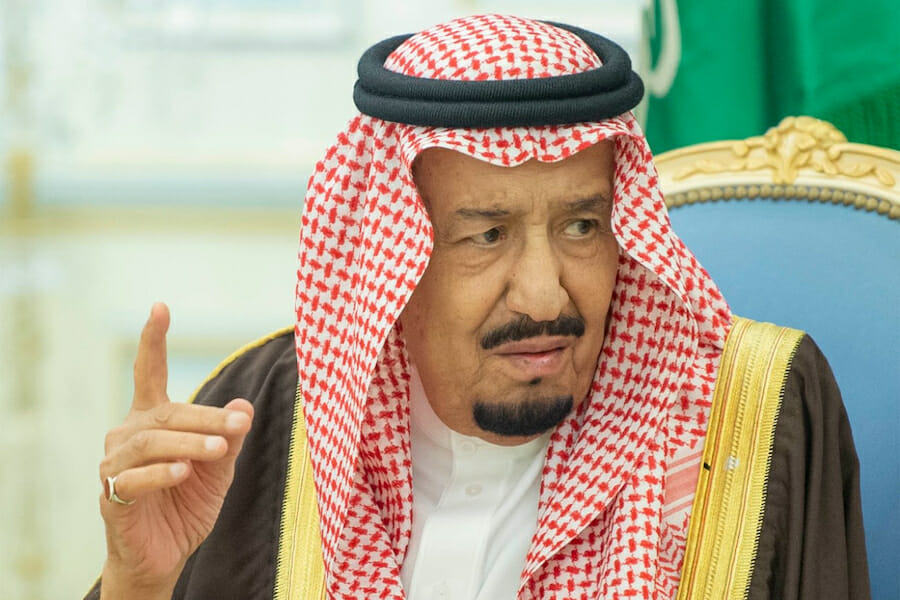
Is the U.S. Losing Saudi Arabia to China?
Saudi Arabia’s declared intention to pivot away from the U.S. in foreign policy implies a shift toward Beijing, which predates both the Obama presidency and the Arab Awakening. While a full-fledged “divorce” from the U.S. appears highly unlikely at this juncture, there is genuine cause for concern in Washington. The Saudi government’s decision has potentially profound implications regionally, as cooperation between Saudi Arabia and the U.S. has been a hallmark of the Middle East’s political landscape for the past 80 years. The U.S. and Saudi Arabia have maintained a strategic partnership since World War II based on a common understanding — Saudi Arabia provides the U.S. with oil and the U.S., in turn, provides a security umbrella to the Kingdom. The two have for many years also shared a mutual interest in containing Communism and Arab nationalism, which has led to many joint U.S.-Saudi campaigns throughout Africa, Asia, the Middle East, and Latin America. Washington and Riyadh’s shared objective of countering the influence of post-revolutionary Iran has also served to strengthen their ties.
Part of what is at issue here is a simmering, lingering tension between Saudi Arabia and the U.S. The U.S. has beaten the ‘democracy’ drum in the Middle East for decades, particularly since 9/11, which has not sat well with the distinctly undemocratic Saudi polity. The fact that 15 of the 19 hijackers of 9/11 were Saudi nationals prompted greater scrutiny in Washington about the nature of the bilateral relationship, as have questions about human rights in the Kingdom since that time. Saudi officials view U.S. hegemony in the post-Cold War era as having a destabilizing impact on the Middle East. Saudi Arabia sees itself as paying a price for reckless and poorly executed U.S. foreign policy, with the U.S., for example, having refused to pressure Israel to make concessions to the Palestinians (consistent with the Saudi Initiative of 2002) and having toppled Saddam Hussein against Riyadh’s advice.
The Saudis saw the U.S. decision to remove Saddam as misguided from the beginning and anticipated that any democratically-elected national Iraqi government would be Shi’ite-majority and politically tied to Iran.
However, when protests erupted in Bahrain in 2011, the Saudis did not wait for a permission slip from the White House before waging a harsh crackdown to defend the Sunni-dominated monarchy in Manama. Riyadh views the prospects of political change in Bahrain as another potential Saudi loss and Iranian gain, rooted amid concern that Saudi Arabia’s own Shi’ite community would rise up against the House of Saud, in response to a Shi’ite take-over of Bahrain.
In addition to viewing American officials as clueless about the Middle East’s realities, the evolution of the Arab Awakening has led many in Riyadh to question Washington’s loyalty to the Kingdom and its allies. When protests erupted across Egypt in 2011, the Saudis were disappointed at the passivity of the Obama administration, which stood by as the power of its strategic partner for 30 years (Hosni Mubarak) disintegrated. Washington’s subsequent decision to withhold a portion of military aid to General Sisi has further irked the Saudis, who back the interim government in Cairo. Many Saudis also accuse the U.S. of betraying the rebels fighting the Assad government in Syria, and Riyadh was angered when the Obama administration decided not to strike Syria following President Assad’s alleged use of chemical weapons.
The Obama administration’s recent diplomatic gestures toward Iran are interpreted in Riyadh as a prelude to a possible shift in the regional balance of power, in which the Saudis may play a secondary role. The Saudis do not, therefore, see the opening as a possible opportunity to reduce the noise between Washington and Tehran, as well as regional tension; rather, the Saudis view the idea of peace with Iran as a quid pro quo in which they lose if Tehran wins. Moreover, the very idea that the Obama administration would engage in dialogue with Tehran is seen in Riyadh as more reason to question Washington’s loyalties and approach, and less reason to maintain a strong alliance with the U.S.
On the China question, Saudi Arabia has diversified its trading partners over the past quarter-century – away from the U.S. and toward Asia. In 2009 Saudi exports to China exceeded those to the U.S. for the first time, and the Kingdom exports in excess of three times more to five Asian countries (China, Japan, South Korea, India, and Singapore) than to Europe and North America combined. By 2030 Chinese demand for oil is expected to reach more than 16 million barrels per day, while U.S. demand is expected to decrease, and U.S. oil imports are expected to dwindle in the age of fracking. Within the context of Chinese demand, Saudi Aramco’s CEO stated a few years ago that “the writing is on the wall” and that China is the future growth market for Saudi petroleum. In doing so, Saudi Arabia is joining the world’s major Muslim powers (Egypt, Indonesia, Iran, Iraq, Kazakhstan, Malaysia, Mauritania, Nigeria, Pakistan, Sudan, and Turkey) that have also deepened their economic ties with China over the past decade.
China’s military currently lacks the capacity to police the Persian Gulf and safeguard shipping, and no country other than the U.S. has the capacity to provide a security umbrella to countries in the region. The Saudis will, therefore, remain dependent on the U.S. in that regard, which also suits Beijing’s interest for the time being. China has been content not to be seen as actively promoting regional stability, but rather to ride the coattails of the U.S. militarily. China is also happy to play the spoiler against U.S.-led efforts to isolate Iran from the international economy, having become Iran’s number one export partner — which points to an inherent contradiction in the Saudis’ approach to the Chinese.
Additionally, the prospects for deeper Saudi-Sino relations are dimmed by their opposing stakes in the Syria crisis, and the ongoing tension in China’s Xinjiang province, which has ignited sensitivities across the Muslim world. As China deftly plays off of Iran and Saudi Arabia’s conflict for its own benefit, Riyadh is not convinced that Beijing will avoid deepening ties with Iran in the future. The Saudis are thus unlikely to risk a total disconnect with Washington, as it appears that Riyadh knows doing so would not be in its own long term interest. The Saudis are thus unlikely to risk a complete break with Washington, but rather, have its cake and eat it too, by giving itself the freedom to pursue its diplomatic initiatives while maintaining a functional relationship with Washington.
What seems most likely is that China, Saudi Arabia, and the U.S. will practice a rather awkward triangular balance of power in the Persian Gulf, reflective of an understanding of their mutual and interwoven dependencies, which limits their mutual capacity to deny each other a preeminent role in the region. China and Saudi Arabia realize that with U.S. military bases in all of Saudi Arabia’s fellow Gulf Cooperation Council member states, neither Beijing nor Riyadh will be capable of removing the U.S. from its position as the most dominant military actor in the Persian Gulf. Saudi Arabia will also benefit from maintaining both countries as top destinations for its future oil exports.
Meanwhile, the U.S. will want to secure Saudi backing for current and future initiatives in the region – however seemingly unlikely that may appear at this time. Shared interests in weakening Hezbollah and militant hardline Takfiri groups (such as al-Qaeda in the Arabian Peninsula) will continue to provide Washington and Riyadh with interest in maintaining cooperative relations. China is no more likely to displace the U.S. security umbrella in the region than it is to single-handedly upend U.S. foreign policy in the Middle East. So while the U.S. is not in imminent danger of ‘losing’ Saudi Arabia to China, it is in danger of exercising far less power in the region, which has been on a downward trajectory since 2011. Saudi Arabia has carefully considered the implications of its pivot away from the U.S., but it also knows what is in its own interest. Riyadh has secured Washington’s attention as a result of its actions last week. It has no illusions that the Obama administration will suddenly do the opposite of what it is doing in Iran and Syria. By the same token, the stakes are high for Washington, as Beijing waits in the wings for the right time to capitalize on future opportunities that the fissure between Riyadh and Washington produces.


